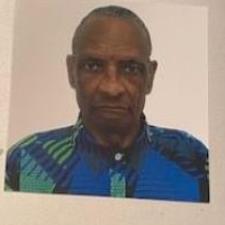
Cameron B. answered • 03/02/21
MA's in Church History and Theology with Guest Lecturing Experience
Richard,
I am stunned no one answered you back six years ago when you asked this question! Especially such an important one! You may not even be on here anymore, but just in case, let me provide some answers and thoughts that hopefully help.
First, there is a distinction in Theology between Divine Actions/Attributes between the Divine Persons (called in intra "towards the internal") and Divine Actions/Attributes towards the created world (called ad extra "towards the external"). What we know about the Trinity ultimately stems from the Divine Processions of the Son and the Spirit from the Father. Processions is a fancy term which denotes the Divine Mission of the Person (e.g. the Son is sent into the world for the redemption of the world) and the relational distinction between each Person (e.g. the Father and Son are ontologically One Being, yet relationally distinct Persons). With that said, we know the Triune God only as he expresses Himself ad extra in His works within the world. We understand works in intra only by applying his expressions ad extra. Thus, the relational attributes that stem from God's Triune Nature are ultimately undisclosed to us.
Now, while some theologians may attempt to further distinguish each Divine Person by appropriating specific operations and roles, ultimately this brings one closer, if not fully, into a type of "functional tritheism" in which each Person acts as distinct beings rather than distinct persons. In the Early Church, they developed a boundary of theological thought which helps to not cross the tritheistic line. This has been identified as The Doctrine of Inseparable Operations. This doctrine states that each Divine Person of the Trinity participates in a singular divine work. Thus, when we consider Divine Attributes ad extra, such as the Event of the Cross, the Divine act of Redemption is not a distinct role/action of the Son. It is rather a unified role/action of the Father, the Son, and the Holy Spirit in which all three are participants at the Cross. Or consider the rational flow of the 6 Days/Periods of Creation. Each marks a distinct day/period; nevertheless, each day is present in a singular act of Creation in which "God Creates the Heavens and the Earth."
There are several Biblical Examples of where this is paramount. Paul in Romans 8 writes an exposition on the Resurrection of Jesus. In this exposition, he connects and ties the "Spirit of Resurrection" as being both inter connected to the work of the Spirit as well as the work of the Son. This is profound because Paul implies that the Son participated in his own resurrection! (Side Note: This passage directly negates a common heresy which attempts to argue that the Cry of Dereliction at the Cross by Jesus [My God, my God, why have you forsaken me?] not as the separation of the Son from the Trinity, which means ultimately his death, but rather his human nature experiencing the full weight of God's wraith towards sin.) Also, John makes several references to the unity of Operations between the Father and Son (e.g. John 10:30-33).
Some recommended authors on such topics are as follows: Thomas Aquinas, Tertullian, Catherine Sonderegger, and Donald Fairbairn.
Blessings,
Cameron Brock




